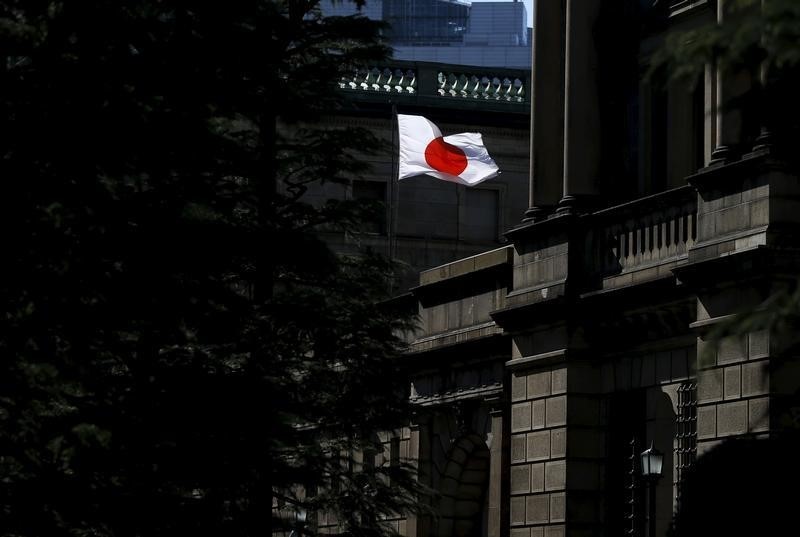SoFi CEO enters prepaid forward contract on 1.5 million shares
Investing.com -- The Bank of Japan is shaping up to deliver an unchanged decision on rates this week, but debate on the next hike is heating with some economists calling for sooner action amid worries about rising wages fueling faster inflation.
"We do not expect any changes in Bank of Japan (BoJ) policy at the upcoming monetary policy meeting on 18-19 March," UBS economists said in a note Monday, citing a lack of urgency following January’s rate hike and recent market volatility.
UBS expects the next hike in July, but they acknowledge the possibility of it being brought forward to June or pushed back to September.
Other agree and back the possibility of earlier action, citing inflation concerns.
"With inflation set to overshoot the Bank’s forecast, we expect the Bank to hike rates again in May rather than July as most anticipate," Capital Economics said in a recent note.
Since the January meeting, when the bank lifted rates by 0.25%, inflation has continued to pick up pace.
Wage growth has been one of the main drivers of inflation, but the acceleration has been hardly surprising following the expected jump in base pay.
Earlier this week, Japanese firms agreed to lift wages by more than 5% on average this year, representing the biggest wage hike in 34 years.
But external factors beyond Japan pose a key risk to its call for May rate hike, Capital Economics said.
"The key risk to that forecast emanates from overseas rather than domestically," Capital Economics said. "Trump has indicated that he will unveil reciprocal tariffs on April 2. What’s more if we’re right and US GDP falls this quarter, that could prompt the bank to get cold feet," it added.
While UBS and Capital Economics differ on the timing of next rate hike, both agree on destination, forecasting the BoJ to hike until rate reach 1.5%
Despite the differing opinion timing, both UBS and Capital Economics project a similar terminal rate. UBS forecasts a terminal rate of 1.5% by the end of 2026, while Capital Economics expects the policy rate to reach 1.5% by the end of 2027.
UBS economists emphasized, however, that their projections hinge on the absence of a U.S. recession, warning that external shocks could derail the BoJ’s normalization efforts, as seen in previous attempts in 2000 and 2006-2007.
As the BoJ prepares for its decision this week, market participants will be closely watching for any signals about future policy moves and the bank’s assessment of inflation risks.
